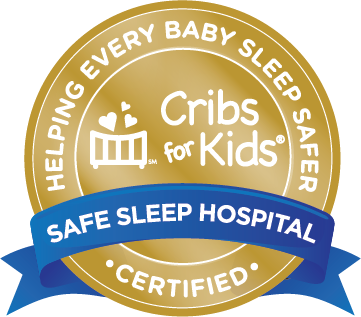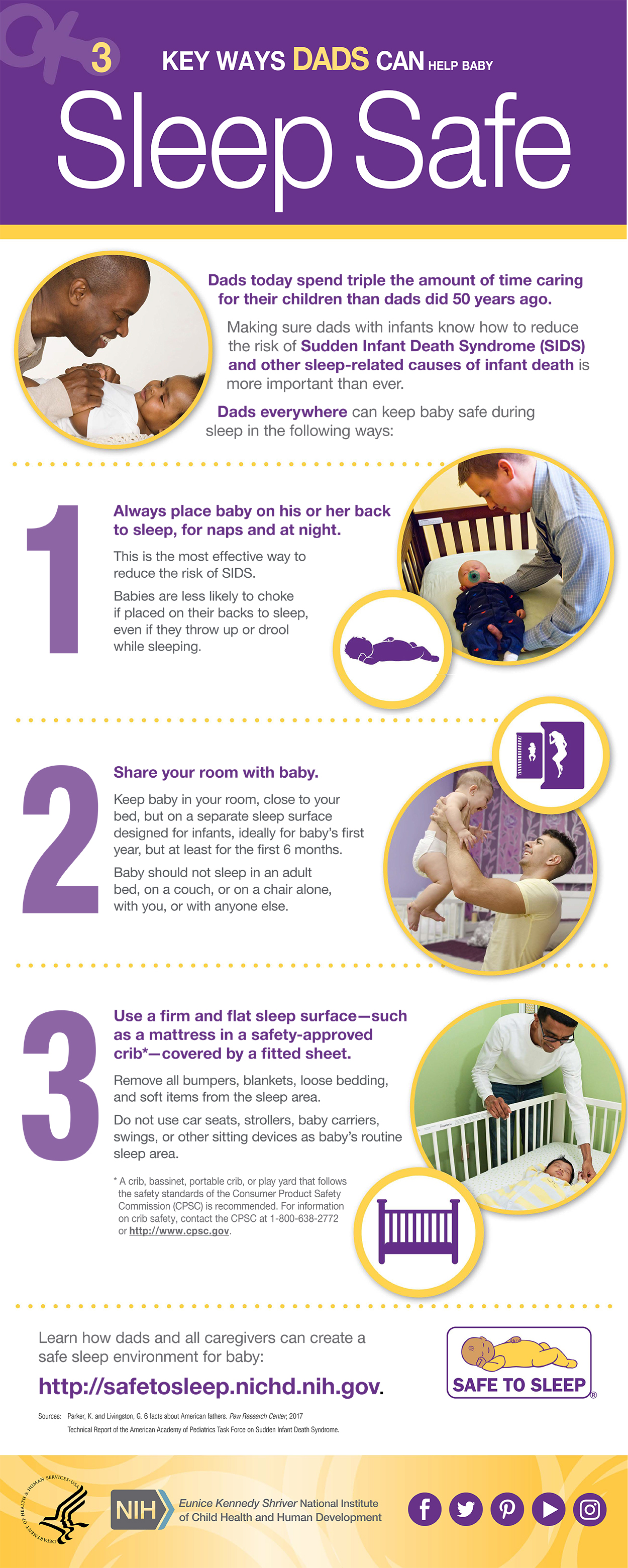Infant Safe Sleep
Your Baby's Safety is Our Priority
Safe Sleep Matters
Sudden Unexpected Infant Death (SUID) is the unexpected death of a child less than one-year-old. With over 3,000 babies in the United States dying due to sleep-related causes every year, it's a risk many families face and an issue we take seriously. Holy Cross Health has achieved Gold Certification from the Cribs for Kids® National Safe Sleep Hospital Certification Program. This designation affirms our pledge to infant safe sleep best practices and our commitment to delivering the highest standards of care for our youngest patients.


Safe Sleep ABCs
ALONE: Baby sleeps alone in an empty crib.
Bed-sharing greatly increases the risk of sleep-related deaths, including when a caregiver falls asleep holding a baby on a couch, bed, or recliner.
A safe sleep space for your baby should be totally empty. Objects such as toys, pillows, stuffed animals, or bumpers increase your baby's risk of entrapment, suffocation, or strangulation.
BACK: Baby should sleep on their BACK for every nap and every sleep.
Even if your baby has reflux or spits up a lot, according to the American Academy of Pediatrics (AAP), it is still safest to put your baby on their back for every sleep.
As babies grow, they may start rolling (back to tummy, tummy to back). Even once babies can roll back-to-tummy and tummy-to-back, caregivers should still place them on their backs to sleep, keep the crib empty, and stop swaddling.
CRIB: Use a firm, flat mattress, and a tightly fitted sheet.
A baby is safest on a firm, flat mattress with a fitted sheet. According to the AAP, a safe sleep space should not indent when the baby is lying on it. Loose blankets could cover the baby's mouth or nose and increase the risk of a sleep-related injury or death.
Do not use sleep products not designed for sleeping babies, such as a Boppy pillow or Dock-a-tot.
Under the Safe Sleep for Babies Act, inclined infant sleepers are now banned. Any sleep space that inclines more than 10 degrees is unsafe and not recommended for baby sleep.
If you do not have a crib, bassinet, or pack-and-play for your baby, talk with your healthcare team member. You can also call Cribs for Kids toll-free at 1-888-721-2742 (CRIB).
Safe Sleep ABCs Podcast Episodes
Did You Know?
There are many baby care products on the market. Check the CPSC when registering for a baby shower and before using an infant care product. Learn more about baby sleep recalls.
Overheating increases the risk of sleep-related deaths. Dress the baby in one more layer than what the caregiver is wearing. According to the AAP, head coverings like hats are no longer considered safe for infant sleep.
Sleep sacks are recommended. However, weighted blankets or weighted sleep sacks are unsafe and not recommended. Don't have a sleep sack? Click the links to learn tips for swaddling safely and when to stop swaddling.
Where your baby sleeps is essential. If a baby falls asleep in a car seat, stroller, swing, infant carrier, or sling, it should be moved to a safe sleep space as soon as possible.
Ask your pediatrician, OBGYN, or nurse for any questions or concerns about safe sleep.
Learn more about Safe Sleep
Safe Sleep Academy
Safe Sleep for Your Baby: Every Nap & Every Night (AAP)
Safe Sleep for Your Baby (NICHD)
Interactive Room
What does a safe sleep environment look like?
What is Safe Sleep?
Do's and Don'ts for Safe Sleep
Safe sleep resources
Local
Holy Cross Health offers expectant parents' education at their fingertips through Baby 101: YoMingo.
Maryland Department of Health Safe Sleep resources.
Healthy Families: Take a class and learn from newborn health educators and RNs. Sign up for classes about childbirth, breastfeeding, and so much more!
Nationwide
Cribs for Kids: Find a crib and learn more about safe sleep
Postpartum Support International hotline: Can't shake the Baby Blues? Get support at 1-800-944-4773.
American Academy of Pediatrics: Safe Sleep Tips
